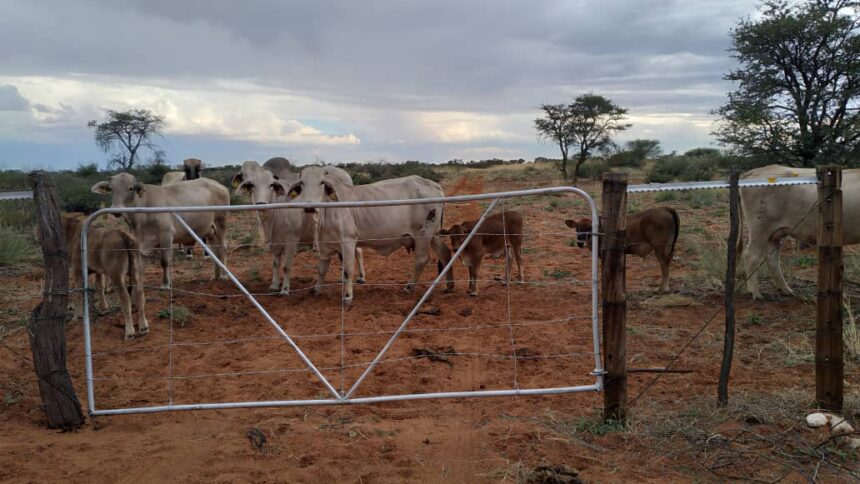Steve Kanguatjivi spent most of his formative years among livestock. As a young man growing up in rural Omaheke, the economic potential of livestock farming was entrenched in him by his parents and the community around him alike. The message was clear; with the right tools and attitude, livestock farming can take you places.
It was, therefore, no surprise that years later, Kanguatjivi would sing praises of this type of farming. His love for small stock farming especially, is difficult not to notice; and he would have it no other way. Simply put, small stock farming is the ardent farmer’s first love.
Kanguatjivi owns and runs Otjimbuku Farming, a communal farm at Ondjiripumwa village located some 150km south-east of Gobabis in the Aminuis constituency. It is here where Kanguatjivi lives out his passion for small stock farming. His preferred breeds are the economically viable Van Rooyen sheep and the king of goat breeds; the Boer goat.
“I have always preferred small stock farming as opposed to farming with cattle. Although the earning potential is obviously not compatible, there is still more one can do with small stock to make sure they bring you sizable returns on your investment,” he said.
Kanguatjivi, a civil servant and weekend farmer, launched his dream farming business in 2011, when he bought his first herd of 10 commercial goat ewes from breeder Herman Bock. The goats would later leave an edible mark on Kanguatjivi’s journey into stud farming.
To fully complement the goats’ pedigree, he decided to opt for a quality stud ram. His answer lay in one of stud breeder Erik Strauss’ top rams, which he bought and introduced to his commercial herd.
“I knew that in order to get the best quality, I had to continuously improve the genetics of my livestock until they are at a standard where they can easily market themselves without having to necessarily do much,” he said.
The stud ram performed well for Kanguatjivi, siring good offspring. Soon the world started to take notice. Kanguatjivi has surely started making his mark as fellow farmers started urging him to sell off some young rams to them for their own herds.
“When people started to take notice and the requests started coming in, I realised that I was busy with something huge and needed to put in more effort into it. I knew that my dream was slowly unfolding before my eyes and I had to stick with it to make sure I see it through,” he said.
To forge ahead with this part of his journey, Kanguatjivi decided to add to his flourishing herd and bought nine goat ewes. This time around, they were all stud animals from renowned breeder Pieter Joubert.
“I wanted to accelerate the pace and perfect the quality of my animals, hence the introduction of these quality livestock. I have since never looked back as far as goat stud farming is concerned,” he said.
A year after first starting his goat farming, Kanguativi decided to go after another love of his; farming with the Van Rooyen sheep. He bought 10 sheep and a ram from two different breeders; the late Basie Claasen and breeder Francois Theron, respectively.
Besides livestock, Kanguatjivi also farms with birds – more specifically pigeons and turkeys which he raises and sells to other farmers.
“I recently sold 10 turkeys and some pigeons to various farmers. They are in demand and are also a good business for those willing to diversify their farming,” he said.
Kanguatjivi said farming on communal land has its fair share of challenges, but that should not discourage people from going into farming. He noted that there are several ways through which farming challenges can be beaten, as such, giving up should never be an option.
He noted that small stock farming requires a farmer to be hands-on, even if you operate remotely.
“I always make it a point to know what is happening around my herd. I am a weekend farmer, but when I get the time – especially on Saturdays when I am on the farm, I herd the livestock myself and take them into the field.
“This allows me to not only develop a relationship with my livestock, but also provide for a chance to have closer inspections of my livestock,” he said.
Kanguatjivi said his dream for a fully fledged diversified farming enterprise might be far from complete, but the strides he had made gives him hope for better prospects for the future.



